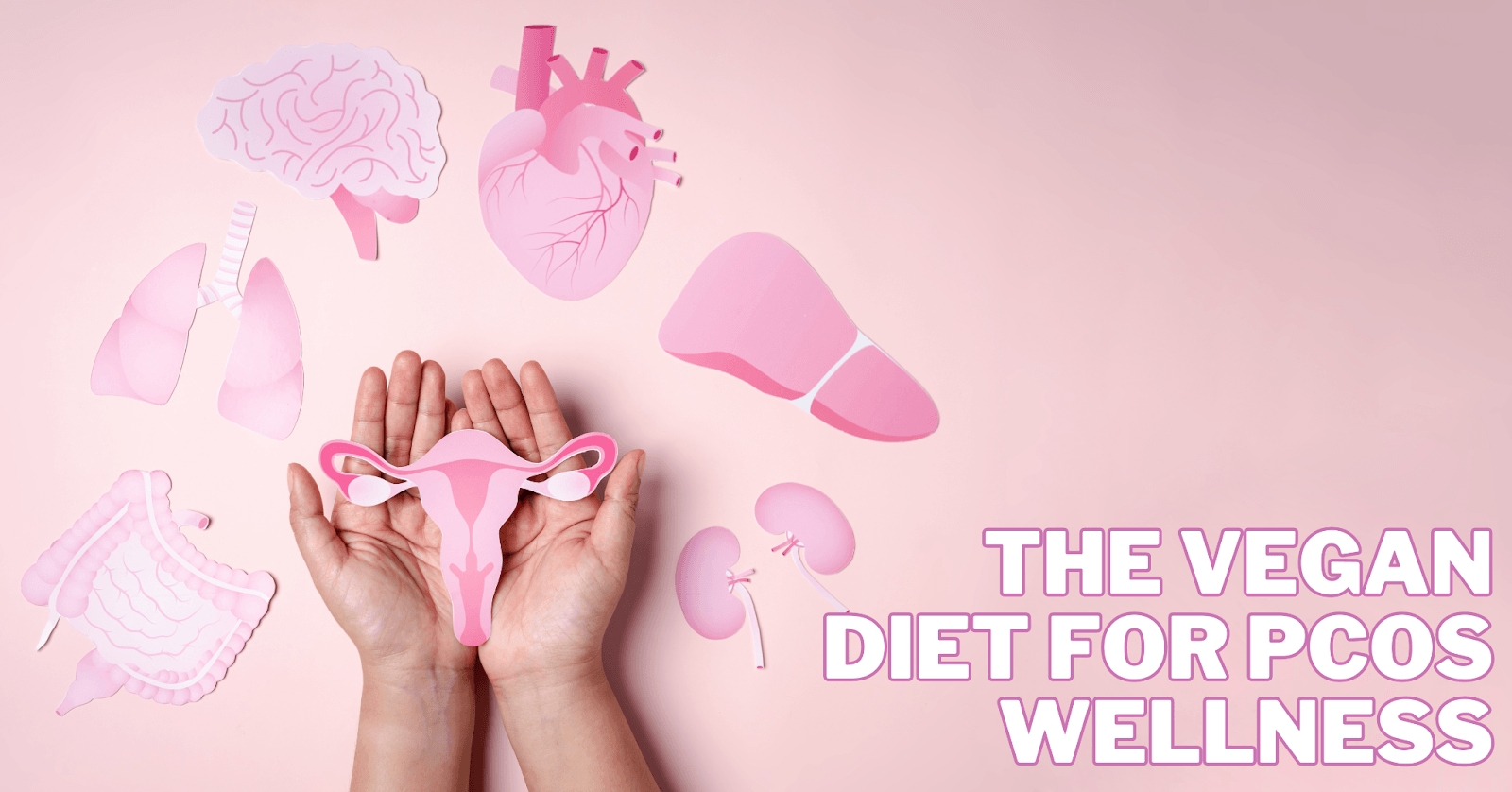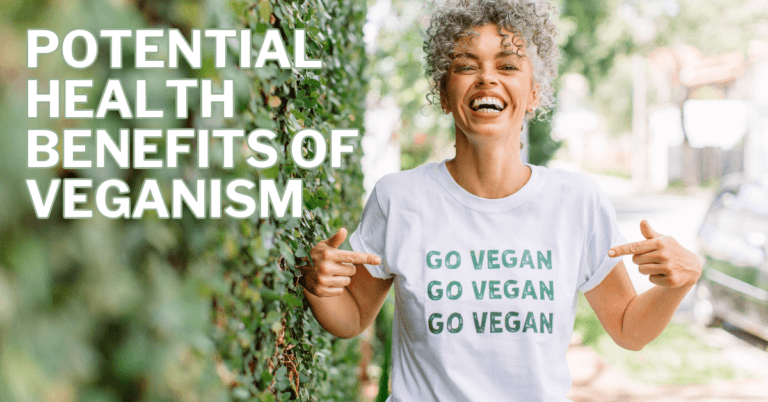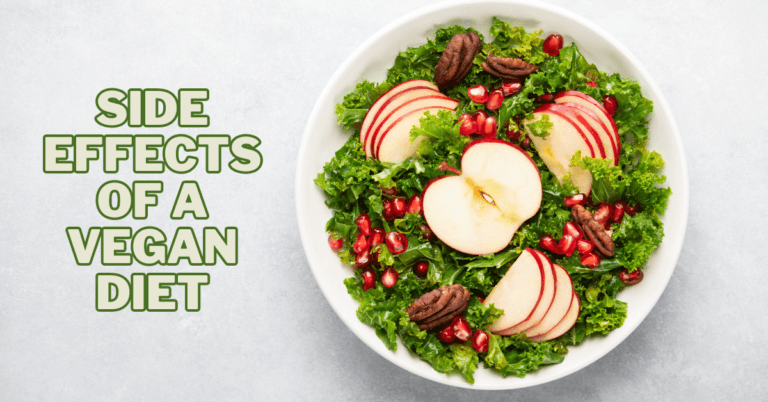Best Vegan Diet For PCOS Wellness
Best Vegan Diet For PCOS Wellness
In a world where dietary choices can transform lives, the intersection of a vegan diet and Polycystic Ovary Syndrome (PCOS) emerges as a beacon of hope and well-being.
A vegan diet for PCOS is the symphony that can harmonize with the challenges of this complex condition, offering management and a path to empowerment and well-being.
PCOS, a complex hormonal disorder affecting millions of individuals, often comes with many symptoms, from irregular periods to weight management challenges.
But what if a plant-based diet could offer relief and empowerment? Welcome to the enlightening journey of discovering the potential of a vegan diet for managing PCOS.
The connection between diet and health has long been studied, and the vegan diet, renowned for its sustainable and humane practices, has drawn interest due to its possible health advantages.
It's not just about what's left off the plate but about the nourishment it brings. With PCOS, where hormonal imbalances play a significant role, the plant-based approach offers a unique perspective.
Join us as we explore the potential of a vegan diet for managing PCOS, where each meal is a taste of compassion and a step toward a healthier, more harmonious life.
Understanding PCOS
Picture your body as a finely tuned orchestra. Each instrument plays a crucial role in harmony, ensuring the symphony of life proceeds without a hitch. Imagine if one instrument went slightly out of tune, disrupting the entire performance.
That's somewhat akin to Polycystic Ovary Syndrome or PCOS—a complex hormonal condition that affects millions of individuals, primarily those of reproductive age.
PCOS is a condition that takes place within a woman's ovaries, although men can also experience related symptoms.
It can be likened to a subtle yet persistent background note in our body's symphony, creating hormonal imbalances and affecting the ovaries' functionality.
PCOS manifests in a myriad of ways, including irregular periods, cysts on the ovaries (hence the name “polycystic”), elevated levels of androgens (the so-called “male” hormones), and insulin resistance.
The result is a complex chorus of symptoms, such as acne, weight management challenges, hair growth on the face and body, and sometimes fertility issues. It's a melody of discomfort that varies from person to person.
PCOS isn't a rare condition; it's a widely known composition, affecting approximately 5-10% of individuals with reproductive potential.
In the realm of women's health, a vegan diet for PCOS takes center stage as a potential dietary crescendo, offering hope for managing this prevalent hormonal condition.
Its frequency makes it an important issue in women's health. But here's where the vegan diet enters the stage.
While there's no cure for PCOS, our food significantly affects how this hormonal orchestra performs.
A vegan diet, which focuses on plant-based whole foods, can help individuals manage PCOS by reducing inflammation, improving insulin sensitivity, and aiding in weight management. It's like a musical score that brings harmony back to PCOS's hormonal composition.
The Science Behind PCOS And Diet
Unlocking the intricate connection between diet and Polycystic Ovary Syndrome (PCOS) is like deciphering a complex musical score.
It's a symphony of scientific insights where each note represents how our foods can either harmonize or disrupt the delicate hormonal balance that characterizes PCOS.
When contemplating PCOS management, a vegan diet for PCOS becomes the harmonious tune in this intricate symphony, potentially offering a dietary composition that helps bring the hormonal ensemble back in tune.
At the heart of PCOS lies a hormonal imbalance akin to an orchestra in which the instruments aren't quite in tune. Insulin and sex hormones, including estrogen, progesterone, and androgens (including testosterone), are two important members of this hormonal ensemble. When the strings of this hormonal orchestra are awry, PCOS symptoms emerge.
Insulin, typically known for regulating blood sugar, plays a leading role. The majority of individuals with PCOS experience insulin resistance, a condition where the body's cells don't respond efficiently to insulin.
Elevated insulin levels due to this hormonal dissonance prompt the ovaries to create more androgens.
The end effect is a hormone imbalance that manifests as increased hair growth, acne, and irregular periods.
This is the point where diet becomes crucial. Refined sugars and carbohydrates are high-glycemic diets that can quickly spike blood sugar levels and produce excessive insulin.
These dietary choices are like the discordant notes in the PCOS symphony, exacerbating insulin resistance and hormonal imbalances.
Now, let's introduce a vegan diet to this symphony. A well-structured vegan diet contains complex carbohydrates, fiber, and whole grains.
These foods are like the harmonious melodies that gently influence the body's response to insulin.
They help stabilize blood sugar levels, reduce insulin resistance, and sometimes alleviate symptoms of PCOS.
Additionally, plant-based foods are rich in phytonutrients and antioxidants, which act as calming notes in this hormonal composition.
They assist in lowering oxidative stress and inflammation, which frequently coexist with PCOS. It has been demonstrated that these plant-based substances favourably affect hormonal equilibrium.
A vegan diet can also balance fats, emphasizing healthy unsaturated fats like those found in nuts, seeds, and avocados.
This can have a soothing effect on the inflammatory aspects of PCOS. Omega-3 fatty acids, prevalent in plant-based sources like flaxseeds and walnuts, can be essential to this nutritional score.
They may help manage symptoms such as elevated androgens, potentially mitigating some of the PCOS symptoms.
In the symphony of PCOS and diet, the choice of foods becomes a conductor, directing the hormonal orchestra.
A vegan diet, rich in plant-based whole foods, is like the harmonious melody that helps restore balance, reducing insulin resistance and mitigating hormonal imbalances.
It's a dietary composition that aligns with the well-being of those navigating the complexities of PCOS.
Benefits Of A Vegan Diet For PCOS
A vegan diet is more than a dietary choice; it's a key that can unlock a world of benefits for individuals grappling with Polycystic Ovary Syndrome (PCOS).
This plant-based way of eating can be a harmonious symphony of advantages, potentially relieving some of the most challenging aspects of PCOS.
1. Weight Management
Weight management often tops the list of concerns for individuals with PCOS. The body's inclination to store excess calories as fat can lead to weight gain and obesity.
A vegan diet, naturally low in saturated fats found in animal products, can be an ally in the battle of the bulge.
It's like a nutritional score that promotes healthy weight management by reducing calorie-dense foods that can lead to weight gain.
A wealth of whole grains, legumes, fruits, and vegetables give important nutrients while controlling calories.
It's like a gentle, harmonious rhythm for the body, supporting weight control without the discord of excessive calories.
2. Improved Insulin Sensitivity
A defining feature of PCOS is insulin resistance, a condition in which cells don't respond to insulin as well as they should, which raises insulin levels and causes hormone imbalances.
A vegan diet has the potential to cause a paradigm shift in this insulin resistance symphony. Concentrating on whole, plant-based diets can improve insulin sensitivity.
Low-glycemic foods, like leafy greens, legumes, and whole grains, result in less insulin production and more stable blood sugar levels.
It's like a flowing melody that helps the body harmonize with insulin, potentially reducing the symptoms of PCOS.
3. Reduced Inflammation
Inflammation is another note in the PCOS symphony, often contributing to its symptoms. A vegan diet, rich in antioxidants and phytonutrients, is a soothing refrain.
These substances, which are prevalent in fruits and vegetables, aid in lowering oxidative stress and inflammation, two conditions that can worsen PCOS symptoms. Similar to the soothing tones of a lullaby, it alleviates the illness's inflammatory facets.
4. Hormonal Balance
The hormonal imbalances that characterize PCOS can lead to a range of symptoms, from irregular periods to acne and increased hair growth.
Regarding hormonal balance, the vegan diet for PCOS is a possible mediator, providing a dietary regimen that balances the complex hormone system and may alleviate PCOS symptoms.
A vegan diet, focusing on whole foods, can help restore hormonal balance. Avoiding foods high in saturated fats and hormones in animal products reduces the risk of further disrupting hormonal equilibrium.
The result is a harmonious composition where hormonal fluctuations may become more manageable.
5. Fertility And Menstrual Regularity
For those with PCOS seeking to conceive, a vegan diet can offer potential advantages. While it's not a guaranteed solution, it can contribute to improved fertility by addressing the underlying factors of PCOS, such as insulin resistance and hormonal imbalances.
Additionally, some women with PCOS report more regular menstrual cycles and an increase in ovulation after adopting a vegan diet.
6. Heart Health
PCOS is often associated with an increased risk of heart disease. A vegan diet can protect heart health by reducing the intake of saturated fats and cholesterol primarily found in animal products.
It also promotes a diet high in heart-healthy fiber, antioxidants, and unsaturated fats, which can support cardiovascular well-being.
In the symphony of PCOS management, a vegan diet is like a beautifully composed piece of music, with each note representing a potential benefit.
From weight management to improved insulin sensitivity, reduced inflammation, and potential hormonal balance, this way of eating can provide a harmonious backdrop for those navigating the complexities of PCOS.
The management of a medical condition such as PCOS necessitates consultation with a qualified dietitian or healthcare professional before making significant dietary modifications. It is crucial to remember that individual reactions to dietary changes may differ.
Vegan Diet For PCOS
Polycystic Ovary Syndrome (PCOS) is a hormonal disorder that can affect reproductive-aged individuals, and it is often associated with insulin resistance.
While there's no specific “PCOS diet,” adopting a vegan or plant-based diet may offer some potential benefits for managing PCOS symptoms.
Remember that individual responses to dietary changes can vary, so it's important to consult with a healthcare professional or a registered dietitian before making significant changes to your diet.
Here are some general guidelines for a vegan diet that may be helpful for individuals with PCOS:
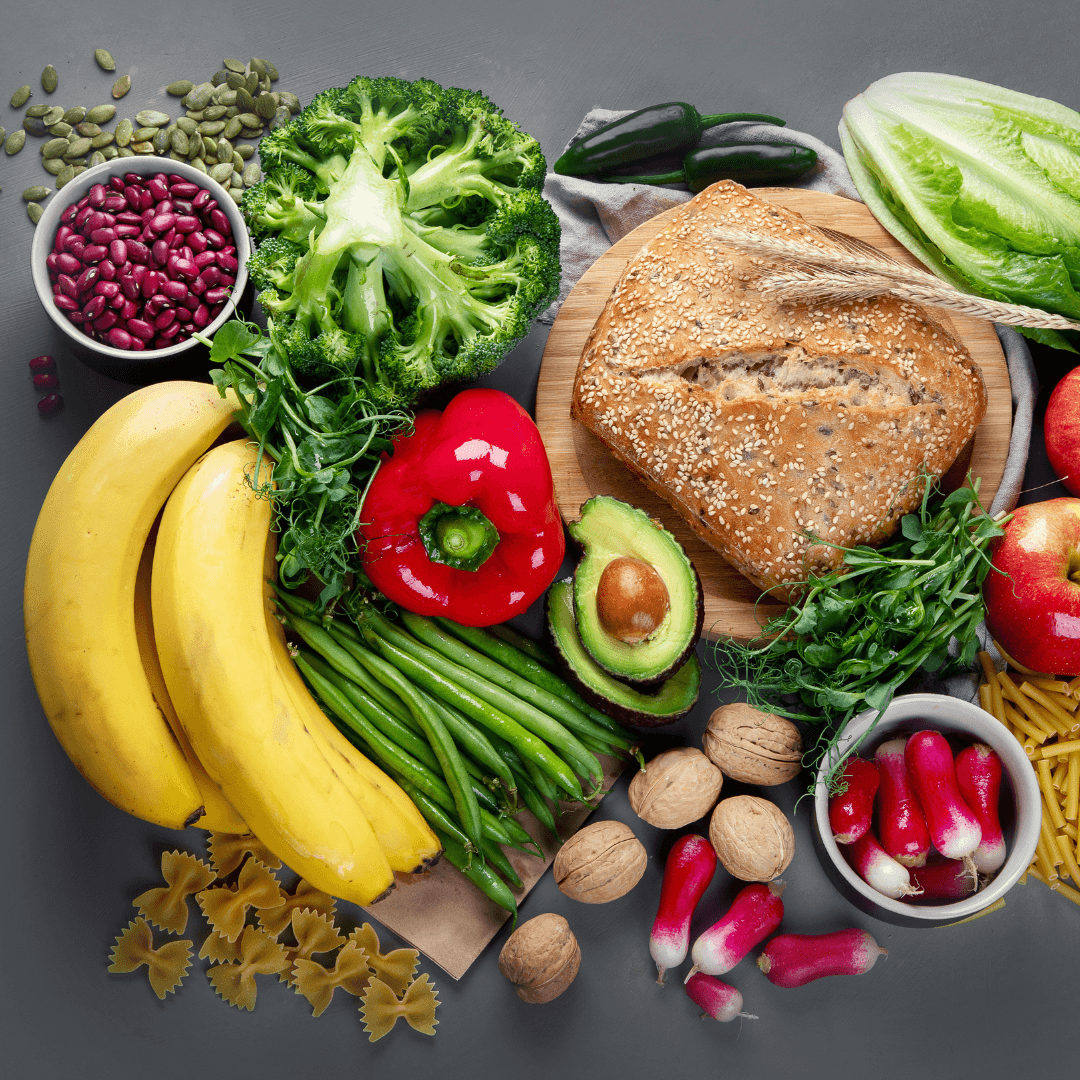
1. Focus On Whole Foods
Focusing on whole foods is integral to a plant-based diet for PCOS. Emphasizing a diverse range of nutrient-rich, plant-based options such as fruits, vegetables, whole grains, legumes, nuts, and seeds is essential.
These foods offer a plethora of essential nutrients, including vitamins, minerals, and antioxidants, which support overall health and help address potential deficiencies common in individuals with PCOS.
Additionally, the high fiber content in these whole foods aids in regulating blood sugar levels and promoting digestive health.
By choosing minimally processed, plant-derived sources, individuals can harness the power of natural compounds that may positively influence hormonal balance, inflammation, and insulin sensitivity—key factors in managing PCOS symptoms.
Ultimately, this emphasis on whole, plant-based nutrition establishes a foundation for a well-rounded and nourishing diet tailored to PCOS management.
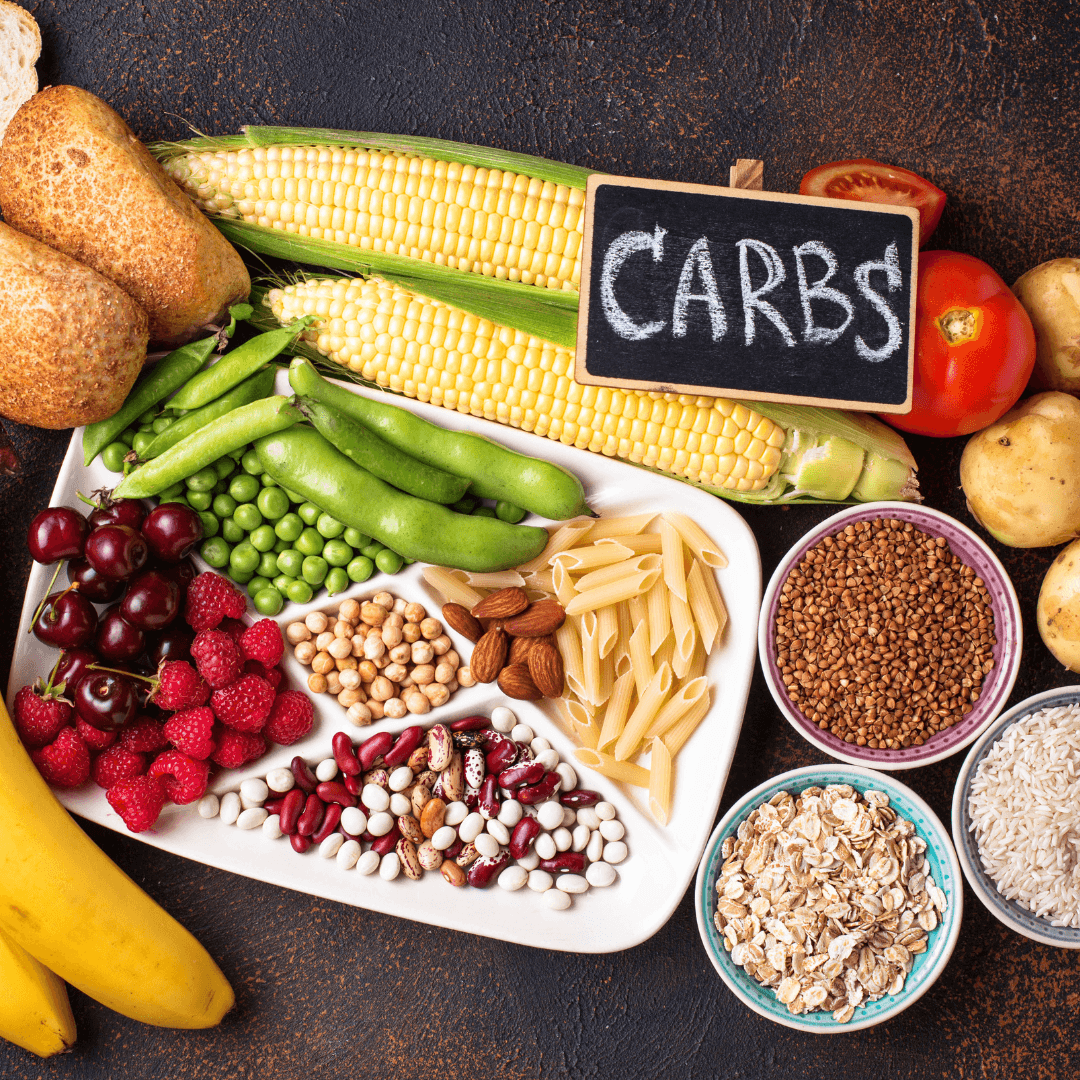
2. Complex Carbohydrates
Choosing complex carbohydrates like whole grains (brown rice, quinoa, oats) and legumes (beans, lentils) is crucial for individuals managing PCOS.
Unlike simple carbohydrates, these complex counterparts boast a lower glycemic index, gradually releasing glucose into the bloodstream.
This gradual release helps stabilize blood sugar levels, a pivotal consideration in PCOS management where insulin resistance is often a concern.
The sustained energy provided by complex carbohydrates also aids in preventing energy spikes and crashes, promoting overall metabolic health.
By favouring these nutrient-dense, slow-digesting options, individuals with PCOS can better regulate their blood sugar, potentially mitigating insulin-related challenges and supporting more stable hormonal function.
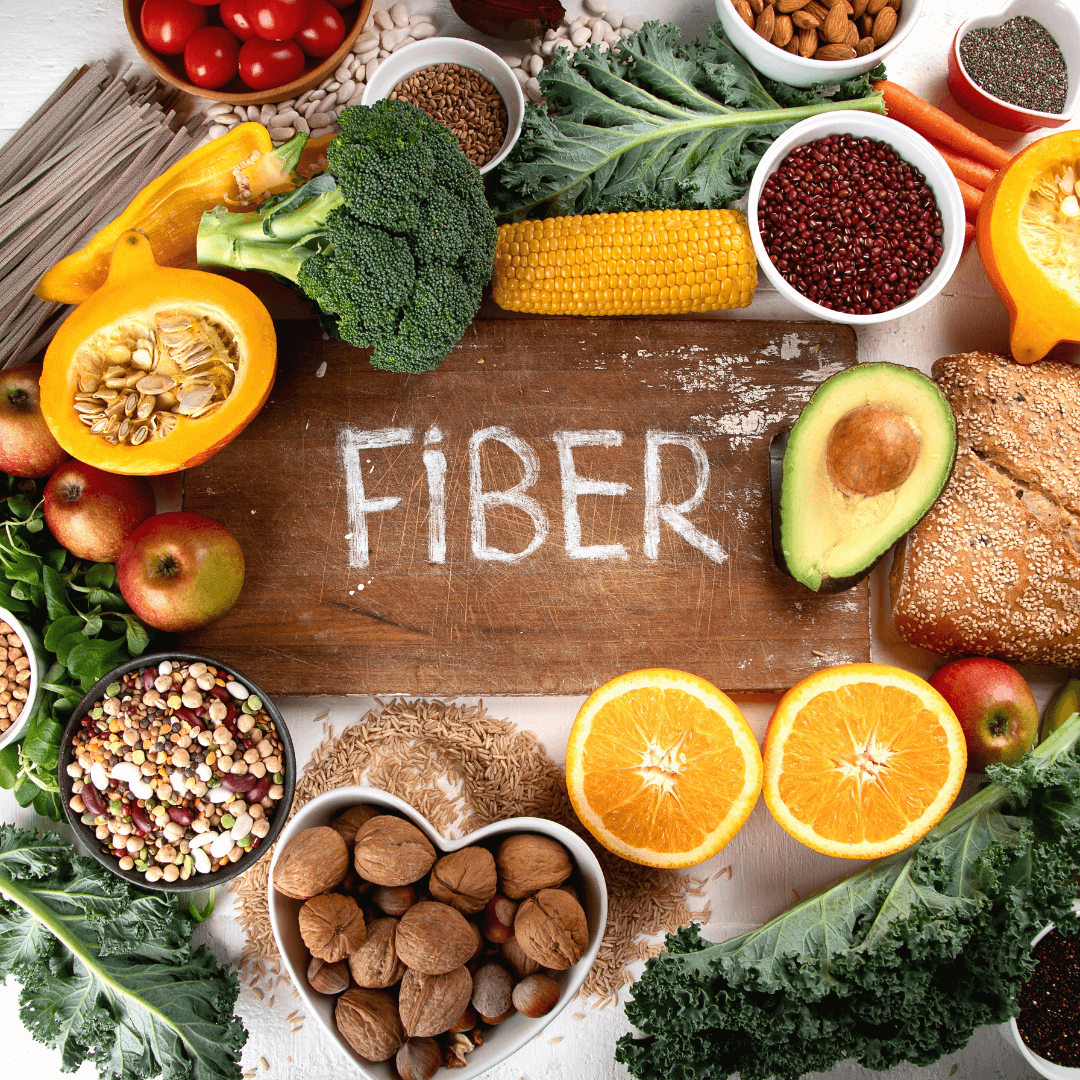
3. Fibre-Rich Foods
For people with PCOS, including a range of high-fibre foods in their diet is imperative. Dietary fiber, abundant in fruits, vegetables, whole grains, and legumes, supports insulin regulation and digestive health.
These foods' soluble fiber helps to prevent blood sugar spikes by slowing down digestion and encouraging a gradual release of glucose.
Furthermore, fiber promotes regular digestion, easing any constipation issues that may arise—a common side effect of PCOS. People may have better metabolic function and overall PCOS management by increasing their fibre intake, which maximizes insulin sensitivity.
Including a diverse range of high-fibre plant-based foods ensures a well-rounded approach to digestive and metabolic well-being in PCOS.
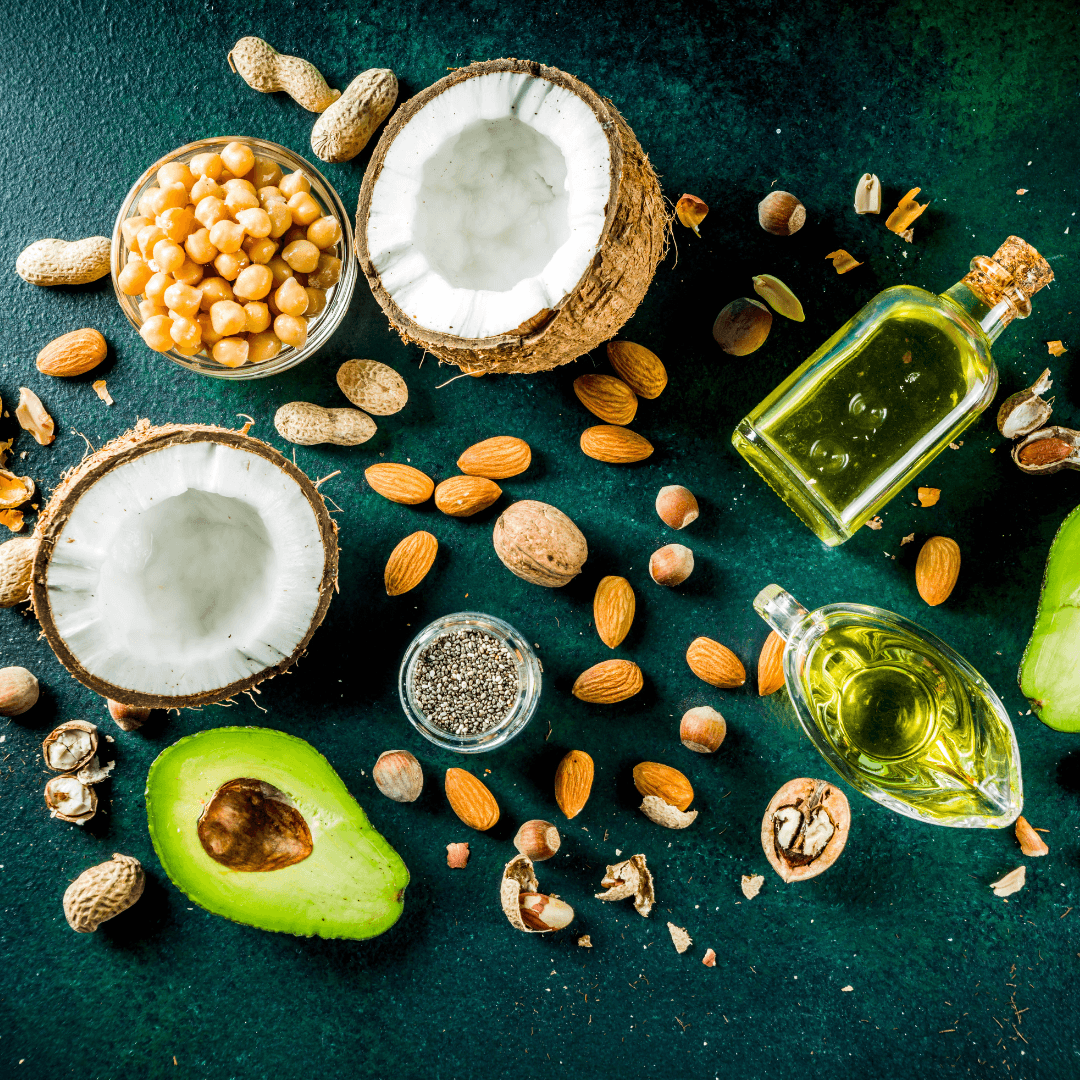
4. Healthy Fats
Prioritizing sources of healthy fats is crucial for individuals managing PCOS, as these fats play a pivotal role in hormone production and overall health.
Avocados, nuts, seeds, and olive oil offer a rich array of monounsaturated and polyunsaturated fats essential for synthesizing hormones and maintaining cellular integrity.
These fats contribute to a well-balanced endocrine system, potentially assisting in managing hormonal imbalances characteristic of PCOS.
Moreover, incorporating healthy fats into the diet supports cardiovascular health and provides a satiating meal component, promoting a feeling of fullness.
By choosing these nutrient-dense sources, individuals with PCOS can cultivate a dietary foundation that positively influences hormonal equilibrium and broader aspects of well-being.
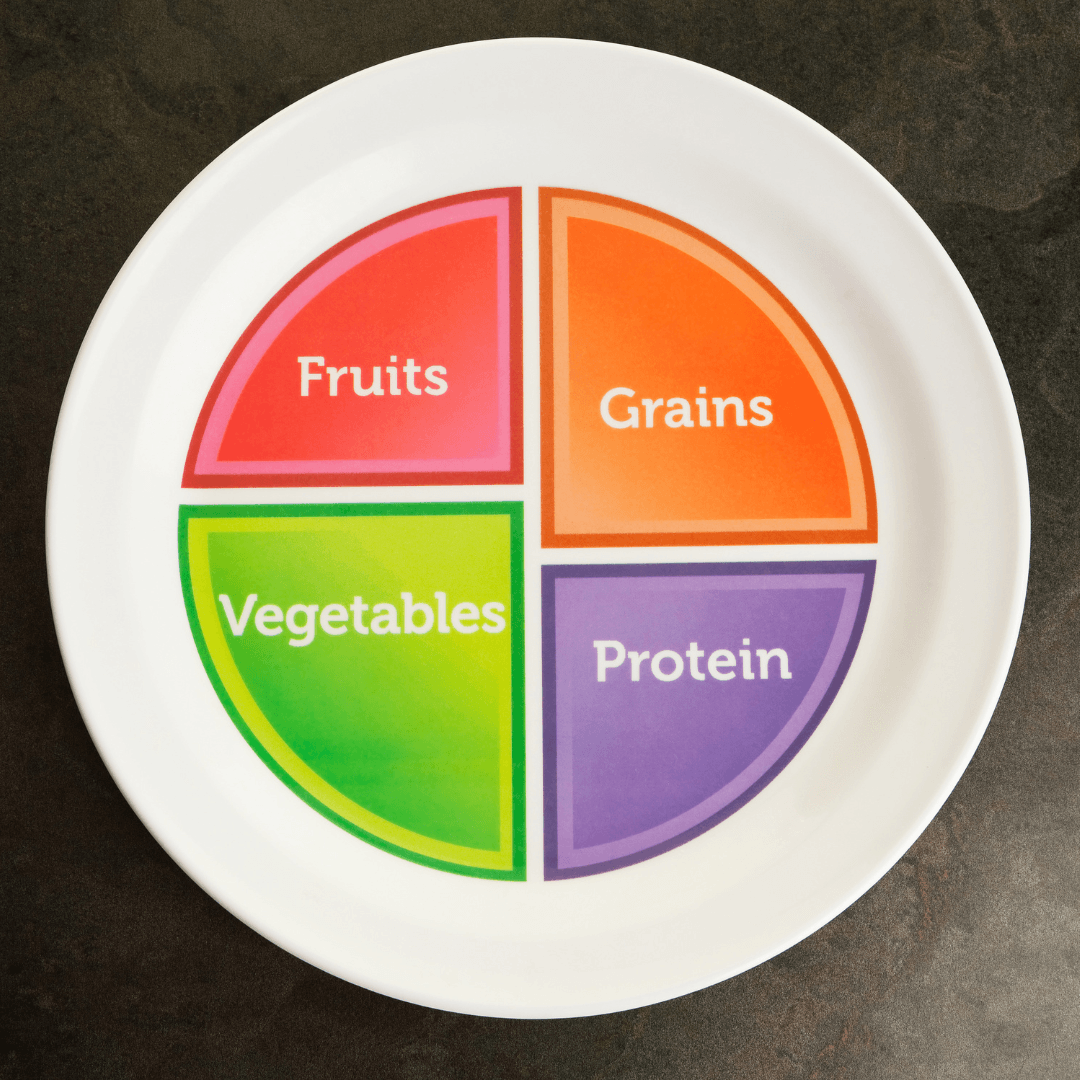
5. Manage Portion Sizes
Attention to portion sizes is crucial to managing PCOS, as it directly impacts weight management and symptom severity.
Mindful portion control helps prevent overeating, a factor often linked to weight gain, which can exacerbate PCOS symptoms.
Excess weight contributes to insulin resistance and hormonal imbalances, common challenges in PCOS.
By practicing portion awareness, individuals can foster a healthier relationship with food, support weight maintenance, and alleviate the impact of PCOS on their metabolic health.
This mindful approach to eating not only aids in achieving and sustaining a healthy weight but also addresses key factors associated with PCOS, fostering overall well-being and better management of this hormonal disorder.
Conclusion
In conclusion, a vegan diet offers a harmonious approach to managing Polycystic Ovary Syndrome (PCOS).
It's a lifestyle that aligns with compassion, environmental conscience, and well-being rather than merely a food decision.
By embracing plant-based whole foods, individuals with PCOS can find relief from some of the condition's most challenging aspects, such as insulin resistance and hormonal imbalances.
The vegan diet is like a beautifully composed symphony, where each meal is a note of self-care and compassion for all living beings.
Within PCOS management, Vegan Diet For PCOS becomes the harmonious and compassionate soundtrack, nurturing your well-being and reflecting your values by advocating for ethical treatment of animals and a sustainable planet.
It's a journey that nurtures your body and aligns with your values, promoting ethical treatment of animals and a sustainable planet.
As you explore the path of managing PCOS through a vegan diet, remember that individual responses may vary, and consulting with a healthcare provider or registered dietitian is crucial when making significant dietary changes, particularly when dealing with a medical condition like PCOS.
Each note represents a step toward a healthier, more compassionate, and sustainable life in this symphony of health.
I trust you enjoyed this article about the Best Vegan Diet For PCOS Wellness. Please stay tuned for more blog posts to come shortly. Take care!
JeannetteZ
>>>Please click here to read my Vegan Travel Guides To World Destinations<<<
>>>Want To Learn How To Create Delicious, Cruelty-Free, Healthy AND 100% Vegan Meals? Try These Awesome Vegan Cooking Courses With A Free 7-DAY MEMBERSHIP<<<
Your Opinion Is Important To Me
Ideas? Thoughts? Questions? I would love to hear from you. Please leave me your questions, experience, and remarks about the Best Vegan Diet For PCOS Wellness article in the comments section below. You can also reach me by email at Jeannette@LivingTheVeganLifestyle.org.
Disclosure
This post may contain affiliate links. I earn from qualifying purchases as an Amazon Associate and other affiliate programs. Please read my full disclosure.
Here are links to some of my favourite articles:
Nourishing Your Body With Vitamin D-Rich Vegan Foods
Best Vegan Beauty Personal Care Products
Best Vegan Pet Food For Health And Happiness

